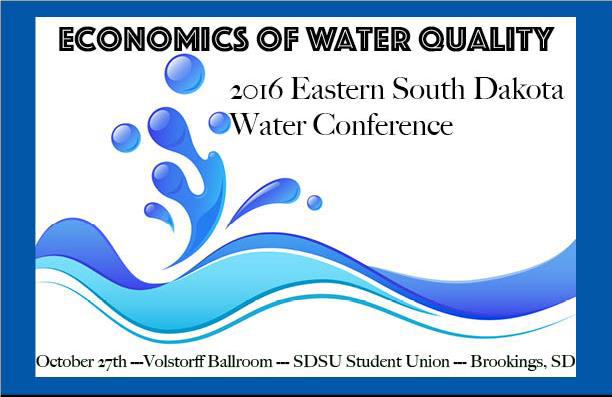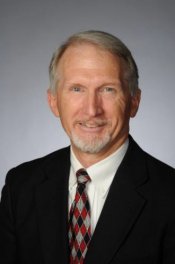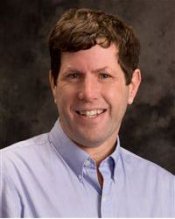2016 Eastern South Dakota Water Conference:
“Economics of Water Quality”
Oct. 27, 2016
University Student Union
South Dakota State University Campus
Brookings, SD
This year’s conference is held on Oct. 27, 2016 on South Dakota State University campus in the University Student Union.
The purpose of the 2016 Eastern South Dakota Water Conference is to bring together individuals from federal, state, university, local government and private organizations and provide a forum to discuss current topics dealing with water and water quality in South Dakota. The conference provides an opportunity for hydrologists, geologists, engineers, legislators, scientists, students and other interested individuals to meet and exchange ideas, summarize the results of studies and discuss mutual problems and potential solutions.
Many people have contributed to this conference. The Organizing Committee would like to thank the presenters and moderators. We would also like to thank our invited speakers and volunteers who helped make the conference a success.

South Dakota State University
- David Clay
- Scott Cortus
- Laura Edwards
- Van Kelley
- Guanghui Hua
- David Kringen
- Rachel McDaniel
- Mary O’Neill
- Chris Schmit
- Nels Troelstrup
- Todd Trooien
U.S. Geological Survey
East Dakota Water Development District
University of South Dakota
South Dakota Association of Conservation Districts
South Dakota Department of Environment and Natural Resources
- Water Resources Institute at South Dakota State University.
- Water and Environmental Engineering Research Center.
- United States Geological Survey.
This program was produced in conjunction with the 2016 Eastern South Dakota Water Conference titled “Economics of Water Quality.” This year’s conference is held on Oct. 27, 2016 on South Dakota State University campus in the University Student Union. The purpose of this program is to provide summaries of the presentations made during the conference.
The purpose of the 2016 Eastern South Dakota Water Conference is to bring together individuals from federal, state, university, local government and private organizations and provide a forum to discuss current topics dealing with water and water quality in South Dakota. The conference provides an opportunity for hydrologists, geologists, engineers, legislators, scientists, students and other interested individuals to meet and exchange ideas, summarize the results of studies and discuss mutual problems and potential solutions.
Many people have contributed to this conference. The Organizing Committee would like to thank presenters and moderators. We would also like to thank our invited speakers and volunteers who helped make the conference a success.
Session Information
Water Quality in South Dakota Streams
Volstorff Ballroom 101B 10:45 a.m. – noon
10:45–11:10 a.m.
Rachel McDaniel, Assistant Professor/Water Resource Engineer, SDSU Department of Agricultural and Biosystems Engineering.
E. coli Fate and Transport in South Dakota Waters.
11:10–11:35 a.m.
Kelsey Murray, Ph.D. Candidate, Biomedical Engineering Program, South Dakota School of Mines and Technology.
Establishing Pathogenicity Profiles of Bacteria Along Selected Reaches of Rapid Creek, Skunk Creek and the Big Sioux River.
11:35 a.m. – noon
Nels Troelstrup, Assistant Head Natural Resource Management, Director Oak Lake Field Station, SDSU.
Efforts to Facilitate Monitoring of Biological Use Attainment in South Dakota Streams.
Assessments, Surveys and Mapping
Volstorff Ballroom 101A 10:45 a.m.–noon
10:45 a.m.–11:10 a.m.
Greg Delzer, U.S. Geological Survey, South Dakota Water Science Center.
Airborne Electromagnetic Survey Used to Assess the Big Sioux River Aquifer to Determine Sustainable Yield for the City of Sioux Falls.
11:10–11:35 a.m.
Pete Bauman, SDSU Extension Range Field Specialist.
Who Protects Who? Native Habitats and Water Corridors in Eastern South Dakota.
11:35 a.m.–noon
Ryan Thompson, U.S. Geological Survey Dakota Water Science Center.
High-Resolution Hydrographic Mapping in Southeastern South Dakota.
Management Practices
Volstorff Ballroom 101B
2:15–3 p.m.
Dianne Radermacher, Administrator, Upper Minnesota Watershed District.
Fixing Big Stone Lake Water Quality – Development of a Targeted and Prioritized Implementation Plan.
Al Miron, Minnehaha County No-Till Farmer.
Economic Savings from the Practice of No-Till and its Effect on Water Quality.
Weather and Climate
Volstorff Ballroom 101A
2:15–3 p.m.
Laura Edwards, Acting State Climatologist and SDSU Climate Field Specialist.
2015-16 Climate in Review.
Tim Cowman, South Dakota Department of Environment and Natural Resources, Geological Survey Program.
A Hydrologic-Hydraulic Model and Web-Based Flood Inundation Mapping Tool for the Big Sioux River Basin.
Emerging Issues
Volstorff Ballroom 101B
3:30–4:45 p.m.
David Clay, Professor of Soil Science, SDSU Plant Science Department.
A Growing Problem in South Dakota, Saline/Sodic Soils.
Jacob Kerby, Associate Professor, Department of Biology, University of South Dakota.
Evaluation of Agricultural Tile Drain Exposure on Wetland Communities.
Sharon Clay, Distinguished Professor, SDSU Plant Science Department.
Herbicide Resistant Weeds: Potential Impacts to Water Quality.
Volstorff Ballroom 101A
3:30–4:45 p.m.
3:30–3:45 p.m.
Alex Boger, SDSU Department of Agricultural and Biosystems Engineering.
Vegetative Best Management Practices for Controlling Roadway Storm Runoff.
3:45–4 p.m.
Afshin Shabani, UND Department of Earth System Science and Policy.
Modeling Water Quantity and Quality in the Devils Lake Watershed Coupling SWAT and CE-QUAL-W2.
4–4:15 p.m.
Ashik Sahani, SDSU Department of Agricultural and Biosystems Engineering.
Demonstration of Drainage Water Management in Eastern South Dakota.
4:15–4:30 p.m.
Utsav Thapa, SDSU Department of Agricultural and Biosystems Engineering.
Using Denitrification Bioreactors and Phosphate Adsorption Media for Water Quality Conservation in Subsurface Drainage Systems in Easter South Dakota.
4:30–4:45 p.m.
Jiyeong Hong, SDSU Department of Agricultural and Biosystems Engineering.
Assessing Hydrologic and Water Quality Impacts of Grassland in Skunk Creek.
Volstorff Ballroom 101A
Ghaem Hooshyari, SDSU Department of Civil and Environmental Engineering.
Evaluating Filter Materials for Escherichia Coli Removal from Stormwater.
Sepideh Sadeghi, SDSU Department of Civil and Environmental Engineering.
The Combination of Alum and Natural Particles for Cyanobacteria (Anabaena sp.) Removal by Coagulation Process.
Ibrahim Abusallout, SDSU Department of Civil and Environmental Engineering.
Characterization of Dissolved Organic Carbon Leached from a Woodchip Bioreactor.
Hector Menendez, SDSU Department of Natural Resource Management.
Estimating Erosion, Water Quantity and Quality Changes in Response to South Dakota Grassland Conversion.
Sara Forness and students, Environmental Science Class, West Fargo High School.
Urban Influences on the Lower Sheyenne: A WFHS Research Project.
Mukesh Mehata, SDSU Department of Agricultural and Biosystems Engineering.
Nitrous Oxide Flux from the Surface of Woodchip Bioreactors.
Shikha Singh, SDSU Department of Plant Science.
Impacts of Winter Manure Application to Soil Nutrients and Water Quality from Small Agricultural Watershed.
Arturo Reyes-Gonzalez, SDSU Department of Agricultural and Biosystems Engineering.
Comparison of Actual Crop Evapotranspiration Estimated from Remote Sensing-based METRIC Model and Measured with Atmometers.
Louis Amegbletor, SDSU Department of Agricultural and Biosystems Engineering.
Evaluating E. coli Particle Attachment and the Impact on Transport During High Flows.
Sadia Salam, SDSU Department of Agricultural and Biosystems Engineering.
Prevalence and Variability of E. coli in South Dakota’s Stream Bottom Sediments.
Abhinav Sharma, SDSU Department of Agricultural and Biosystems Engineering.
Application of Controlled Drainage and Saturated Buffers Use for Conservation Drainage in South Dakota.
Keynote Speakers

Dr. John D. Lawrence
Associate Dean, College of Agriculture and Life Sciences
Director, Agriculture and Natural Resources Extension
Iowa State University Ames, Iowa
John Lawrence has served as associate dean for extension in Iowa State University’s College of Agriculture and Life Sciences and director for Agriculture and Natural Resources for Iowa State University Extension and Outreach since 2010. As director for Agriculture and Natural Resources, he leads the largest ISU Extension and Outreach program area.
Lawrence also serves as director of the Iowa Nutrient Research Center, established in 2013 by the Iowa Board of Regents. He was a leader in collaborative efforts to develop Iowa’s Nutrient Reduction Strategy, a science and technology-based approach to assess and reduce nutrients delivered to Iowa waterways and the Gulf of Mexico.
Lawrence also has been an Iowa State professor of economics since 1991. He previously has served as an extension livestock economist, an assistant director of the Agriculture Experiment Station and director of the Iowa Beef Center at Iowa State.
Lawrence has written extensively for professional and trade journals, extension publications and given more than 700 formal presentations in 24 states, five Canadian provinces, Mexico, Korea, The Netherlands, China and Australia. In 2009, Iowa Farmer Today named him as one of the 25 most influential people in Iowa agriculture over the past 25 years, 1984 to 2009. He earned bachelor’s and master’s degrees from Iowa State University in animal science and economics, respectively, in 1984 and 1986, and a doctorate in agricultural economics from the University of Missouri in 1989. Lawrence was raised on a crop and livestock farm near Tabor in southwest Iowa.

Dr. Stephen Polasky
Regents Professor and Fesler-Lampert Professor of Ecological/Environmental Economics
Department of Applied Economics
College of Biological Sciences
University of Minnesota
Stephen Polasky is a Regents Professor and the Fesler-Lampert Professor of Ecological/Environmental Economics at the University of Minnesota. His research interests focus on issues at the intersection of ecology and economics and include the impacts of land use and land management on the provision and value of ecosystem services and natural capital, biodiversity conservation, sustainability, environmental regulation, renewable energy and common property resources.
Dr. Polasky is a co-founder of the Natural Capital Project. He served as Senior Staff Economist for environment and resources for the President’s Council of Economic Advisers 1998-1999. He currently serves on the Board of Directors and the Science Council for The Nature Conservancy, the Sustainability External Advisory Committee for Dow Chemical, and the Science Advisory Board of NOAA. He was elected into the National Academy of Sciences in 2010. He is a fellow of the Association of Environmental and Resource Economists, the American Academy of Arts and Sciences and the American Association for the Advancement of Science. He received a Ph.D. in economics from the University of Michigan in 1986.

